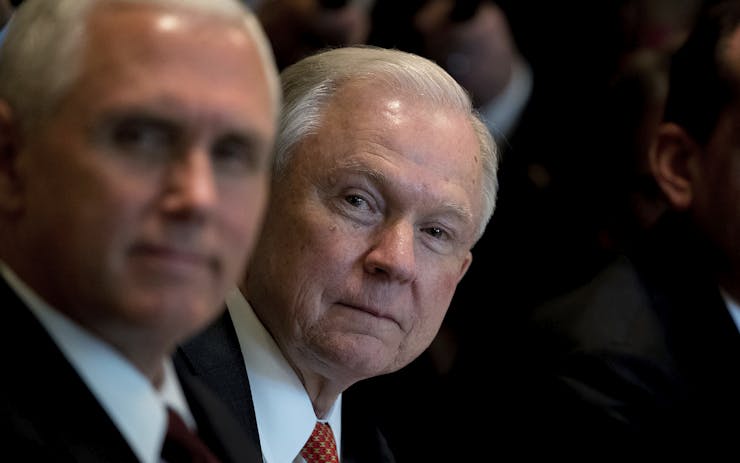When President Donald Trump signed a $1.1 trillion spending bill last month, he seemed to scoff at a bipartisan provision that prevents the Justice Department from prosecuting state-legal medical cannabis. Now his attorney general, Jeff Sessions, wants to do away with the protection completely.
In a May 1 letter to congressional leaders, Sessions urged federal lawmakers to oppose the provision, known as the Rohrabacher–Blumenauer amendment. It’s yet another sign that, despite the president’s past support of medical marijuana, his administration appears to be planning a crackdown on state-legal cannabis.
“I believe it would be unwise for Congress to restrict the discretion of the Department to fund particular prosecutions, particularly in the midst of an historic drug epidemic and potentially long-term uptick in violent crime,” Sessions wrote in the letter.
“The Department,” he continued, “must be in a position to use all laws available to combat the transnational drug organizations and dangerous drug traffickers who threaten American lives.”
The letter, sent to Senate Majority Leader Mitch McConnell, Speaker of the House Paul Ryan, Senate Minority Leader Charles Schumer, and House Minority Leader Nancy Pelosi, was obtained by cannabis reporter and legalization advocate Tom Angell.
To justify his request, Sessions trots out a parade of prohibitionist talking points. He references the ongoing opioid epidemic, for example, but fails to note that states with legalized medical cannabis have seen opioid deaths decline by an average of 25%. He wrings his hands over “transnational drug organizations and dangerous traffickers,” but omits the fact that the Rohrabacher–Blumenauer amendment protects only state-legal cannabis actors.
And, for good measure, he notes that the DEA “concluded that ‘marijuana has a high potential for abuse, no currently accepted medical use in treatment in the United States, and a lack of accepted safety for use under medical supervision’”—despite the growing body of research that suggests cannabis is safer and more effective than many Food and Drug Administration-approved pharmaceuticals.
The Rohrabacher–Blumenauer amendment, last renewed in April, is set to expire in September if not renewed by Congress.






